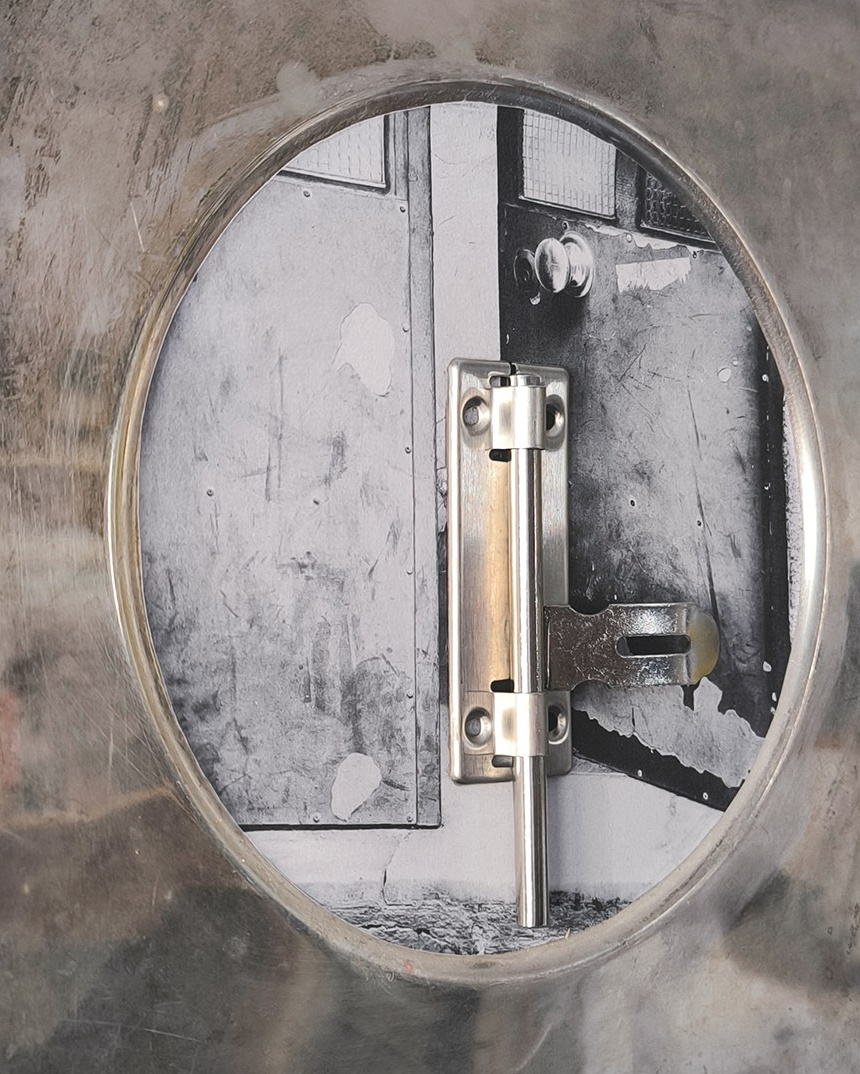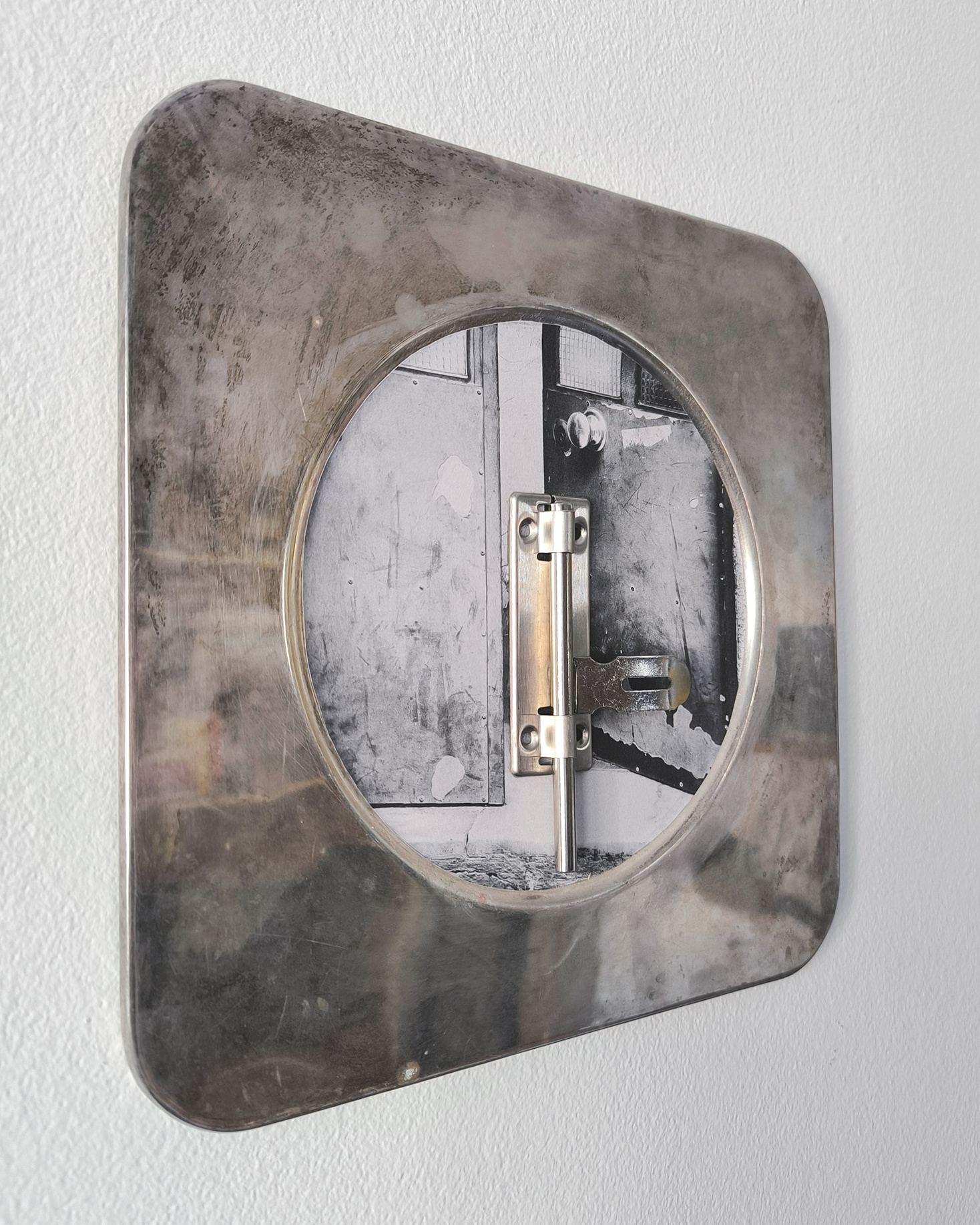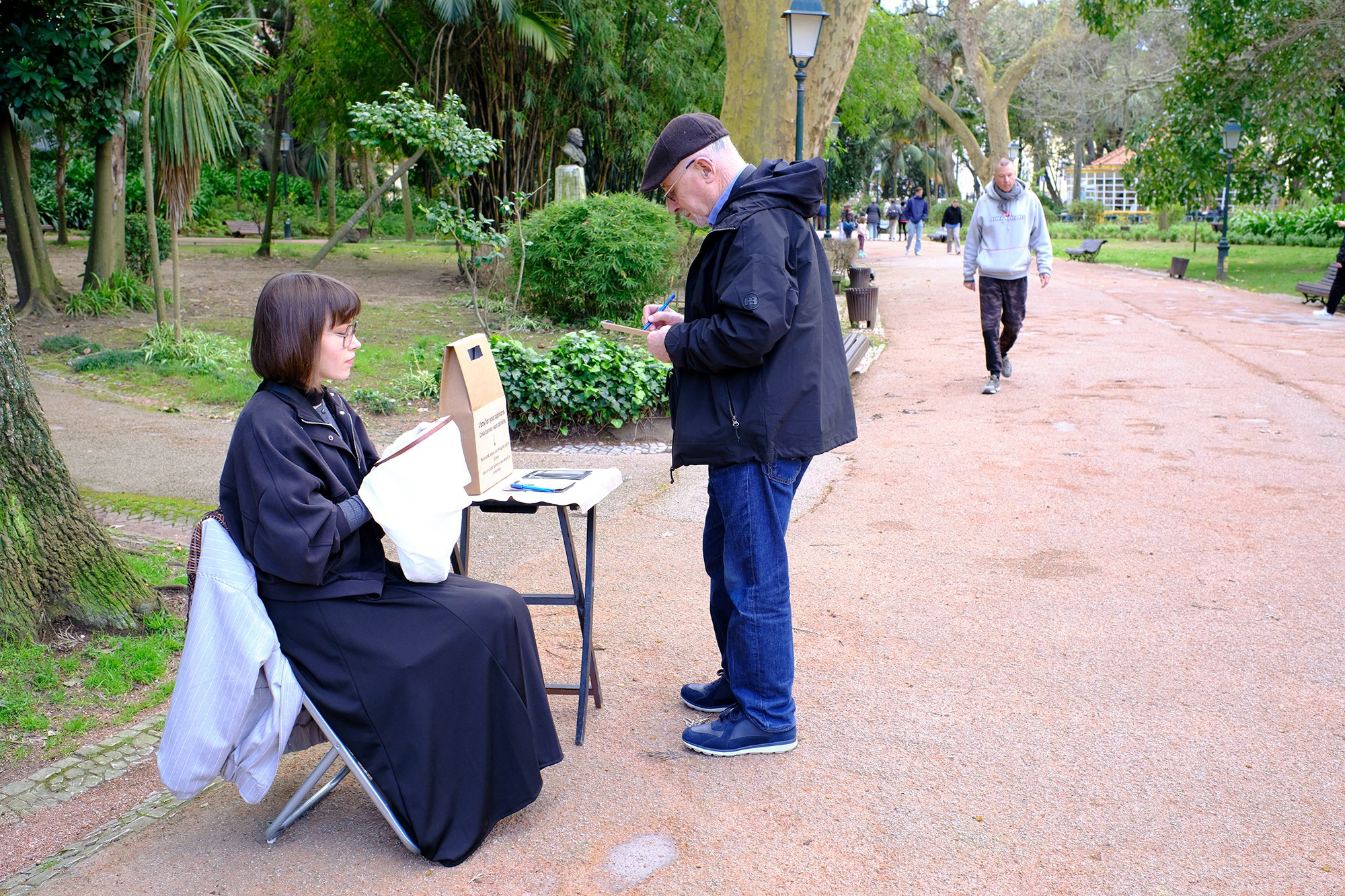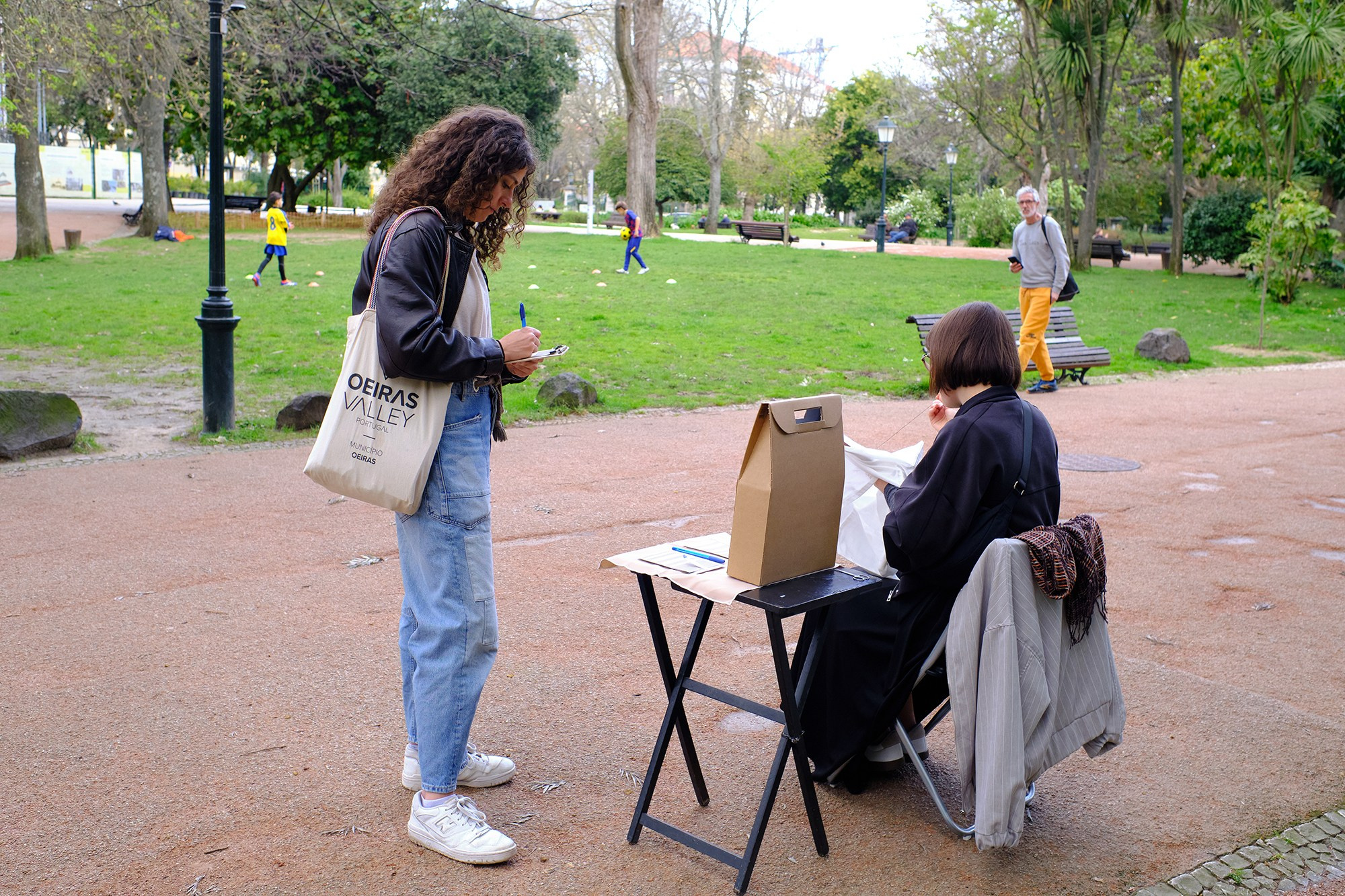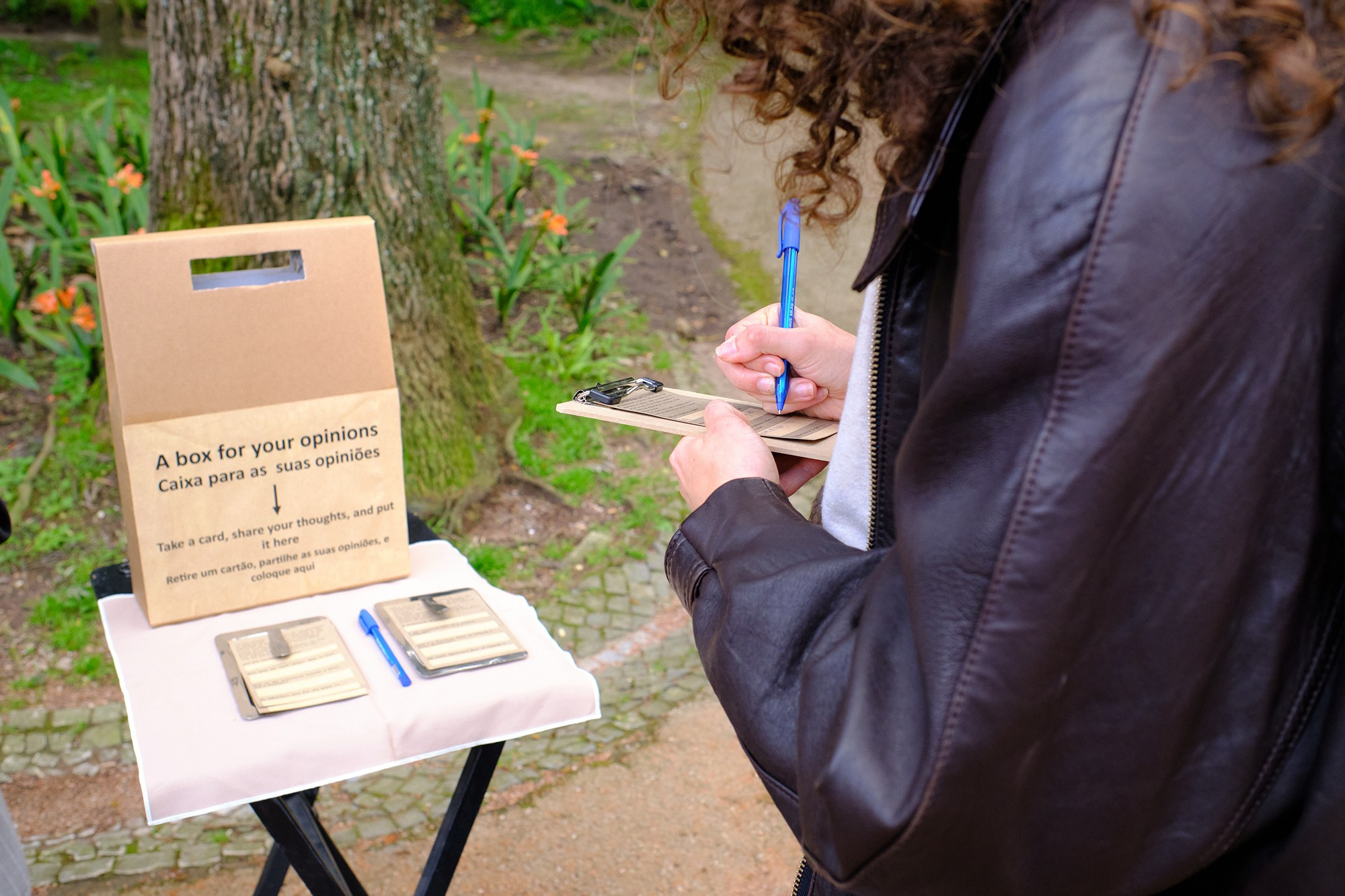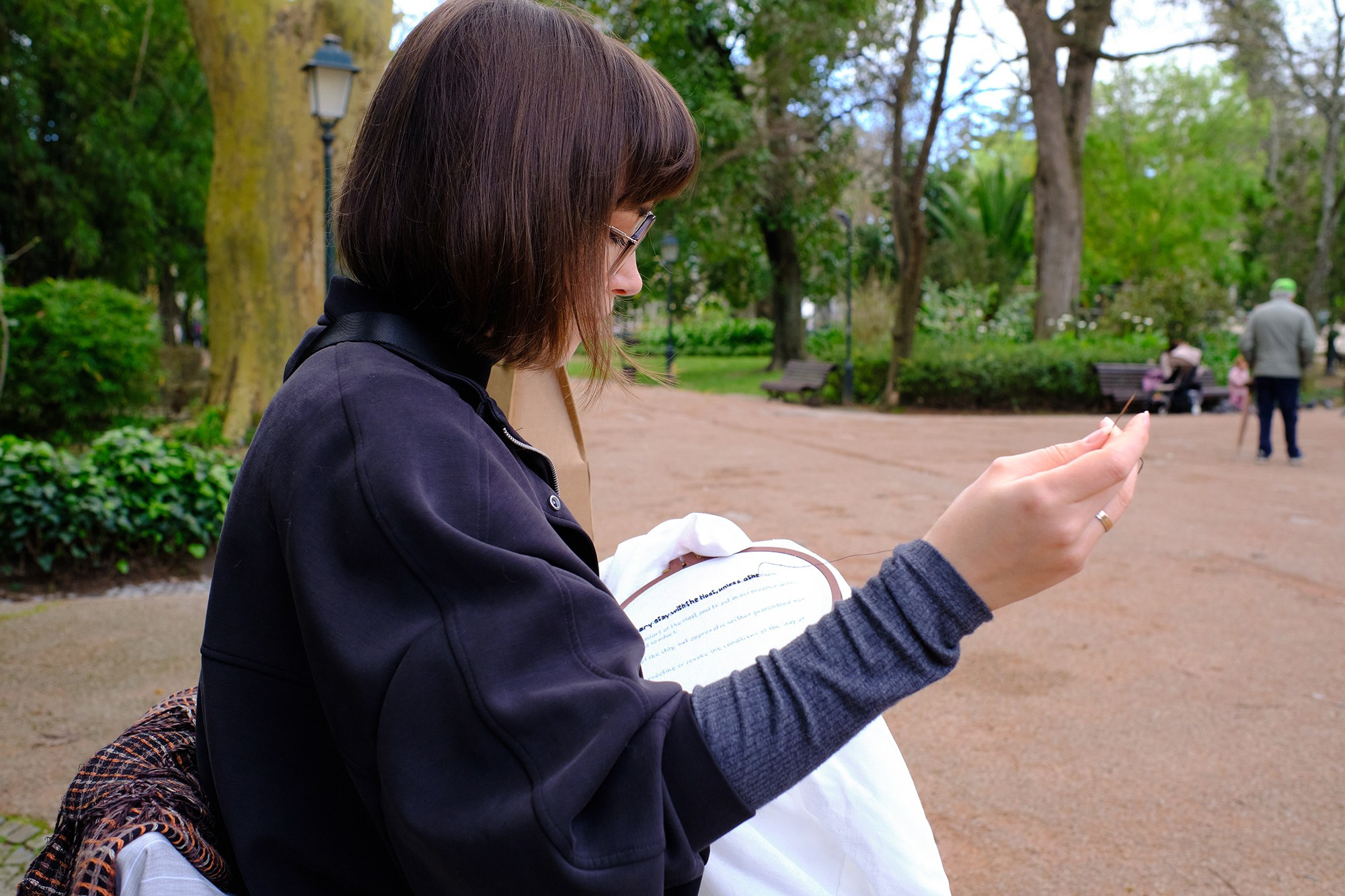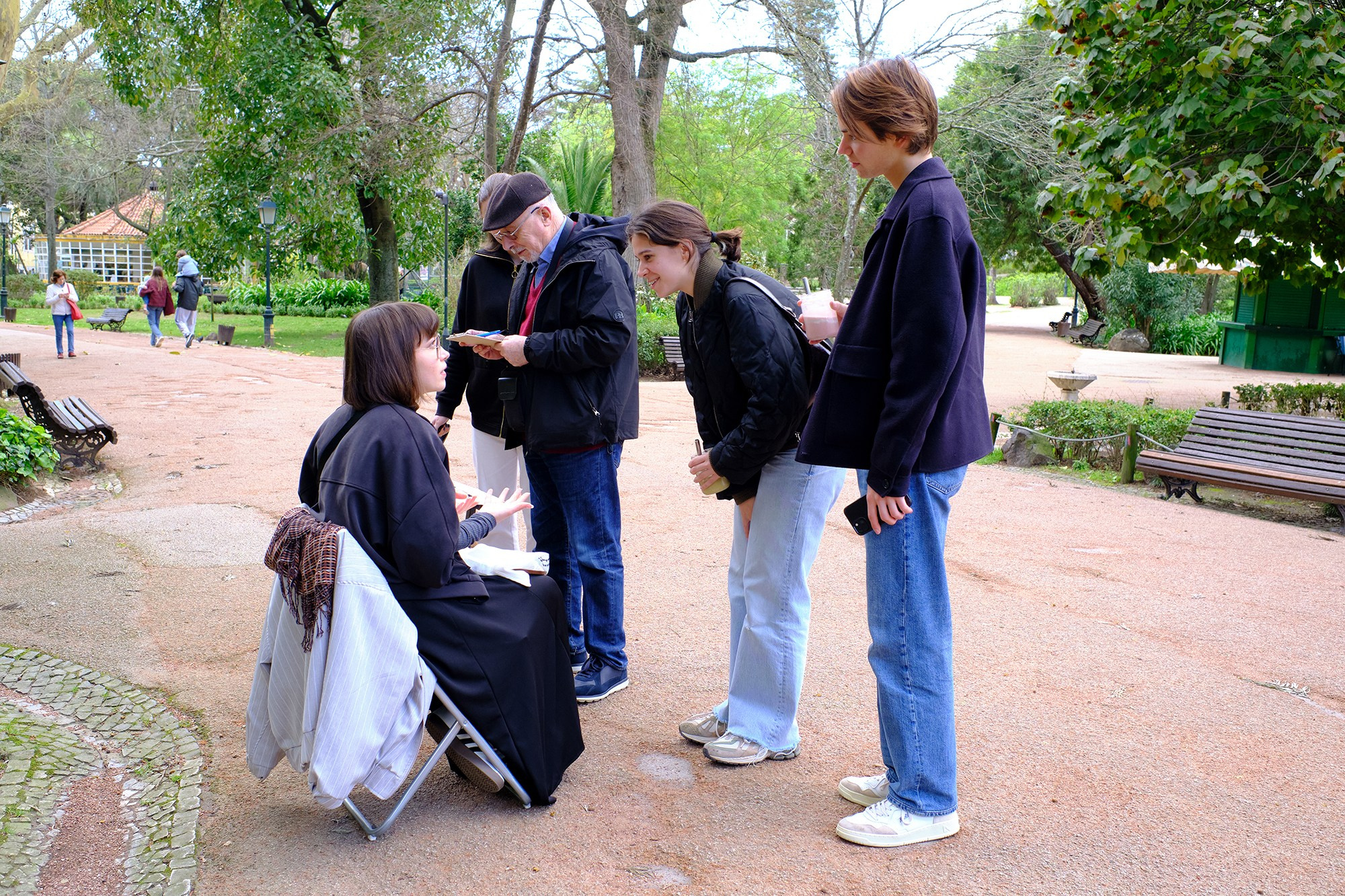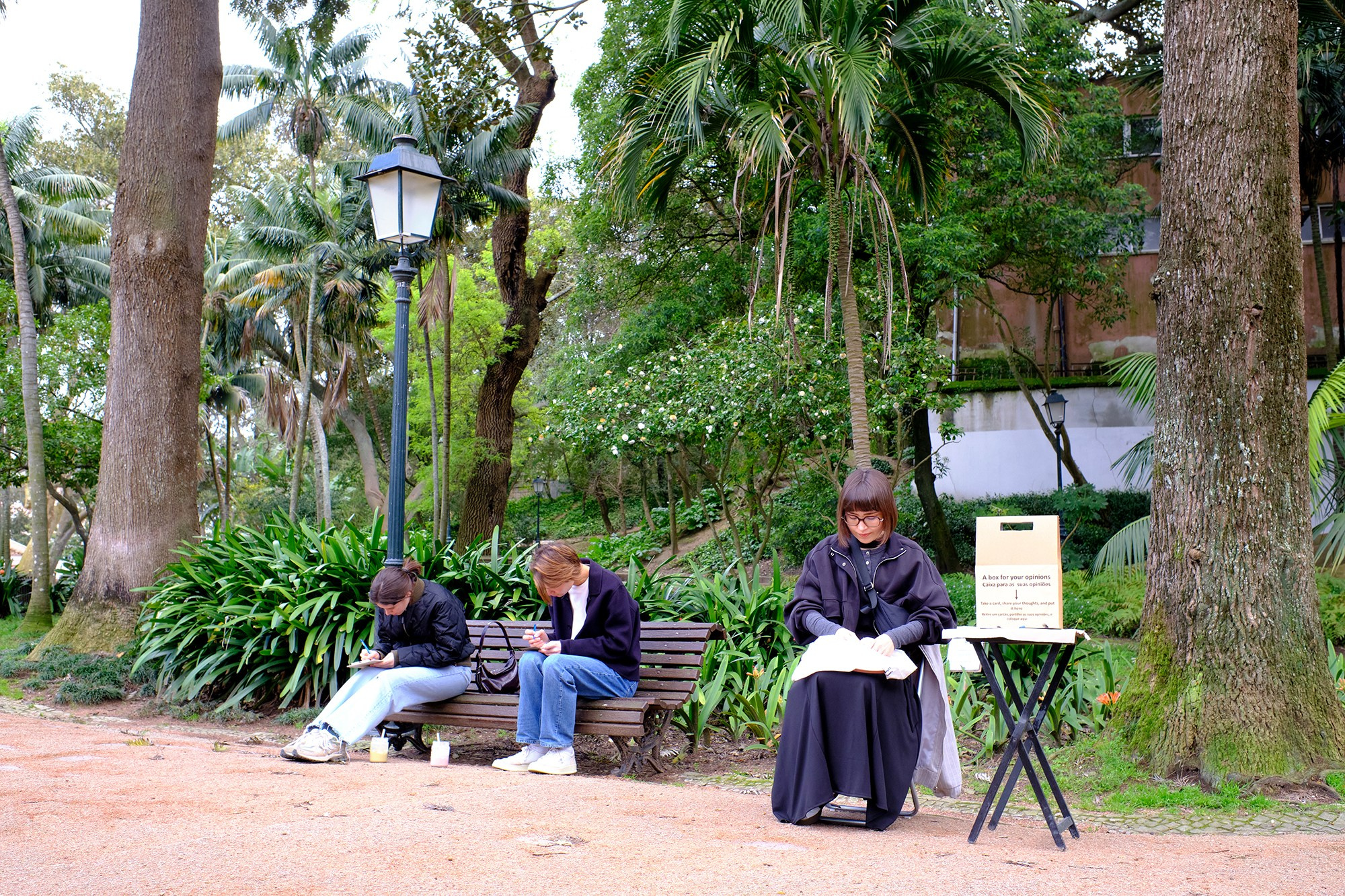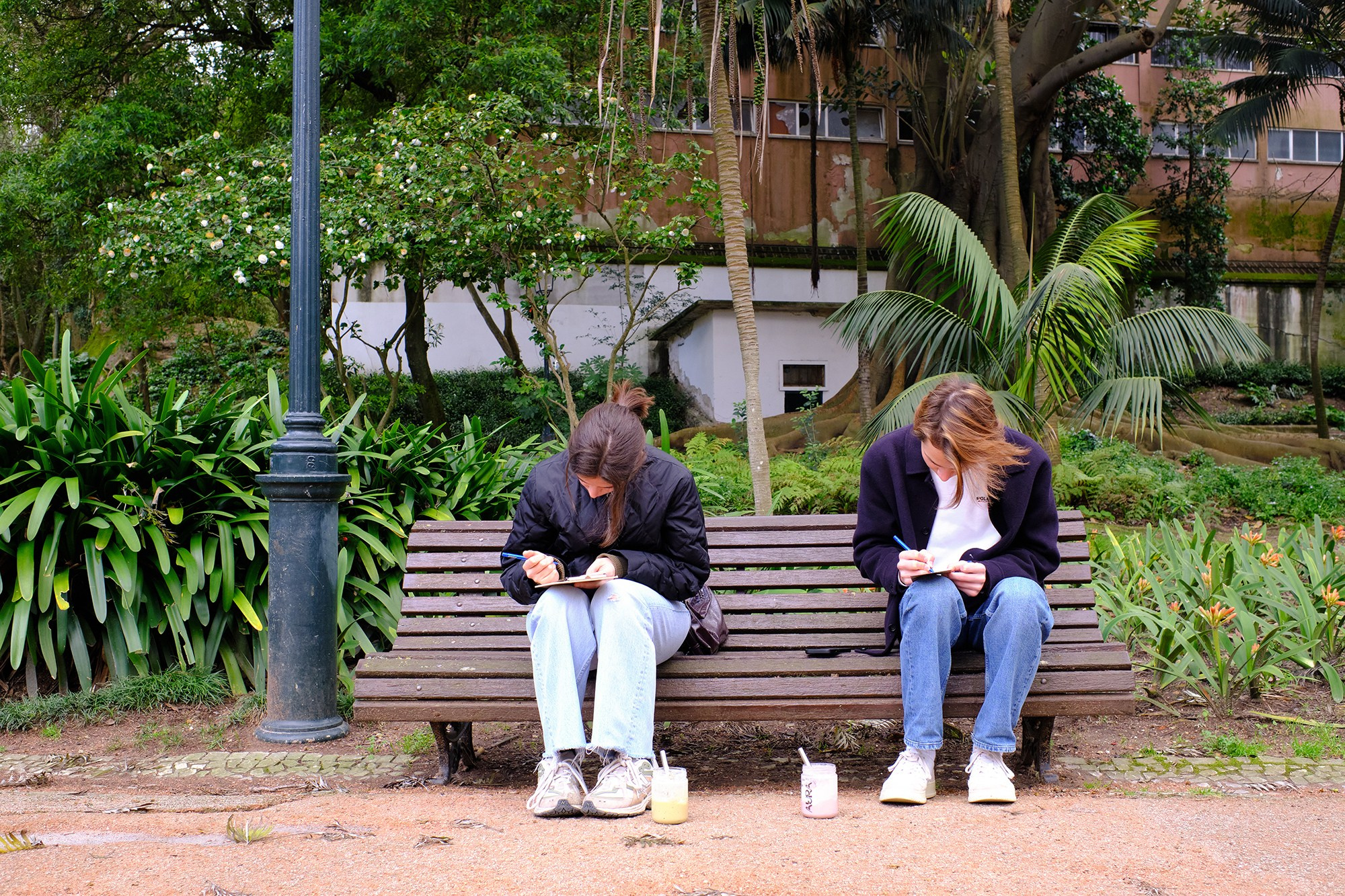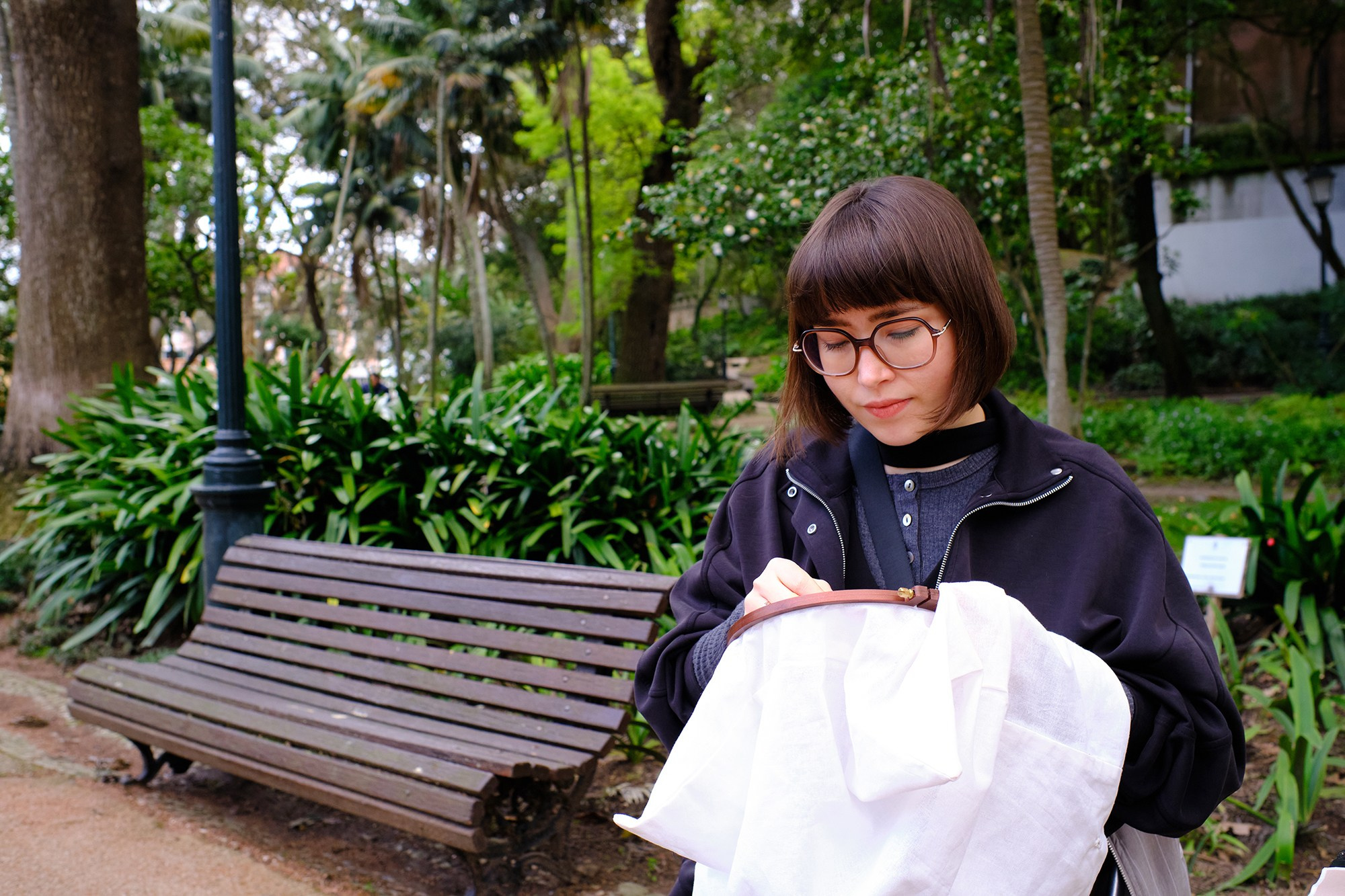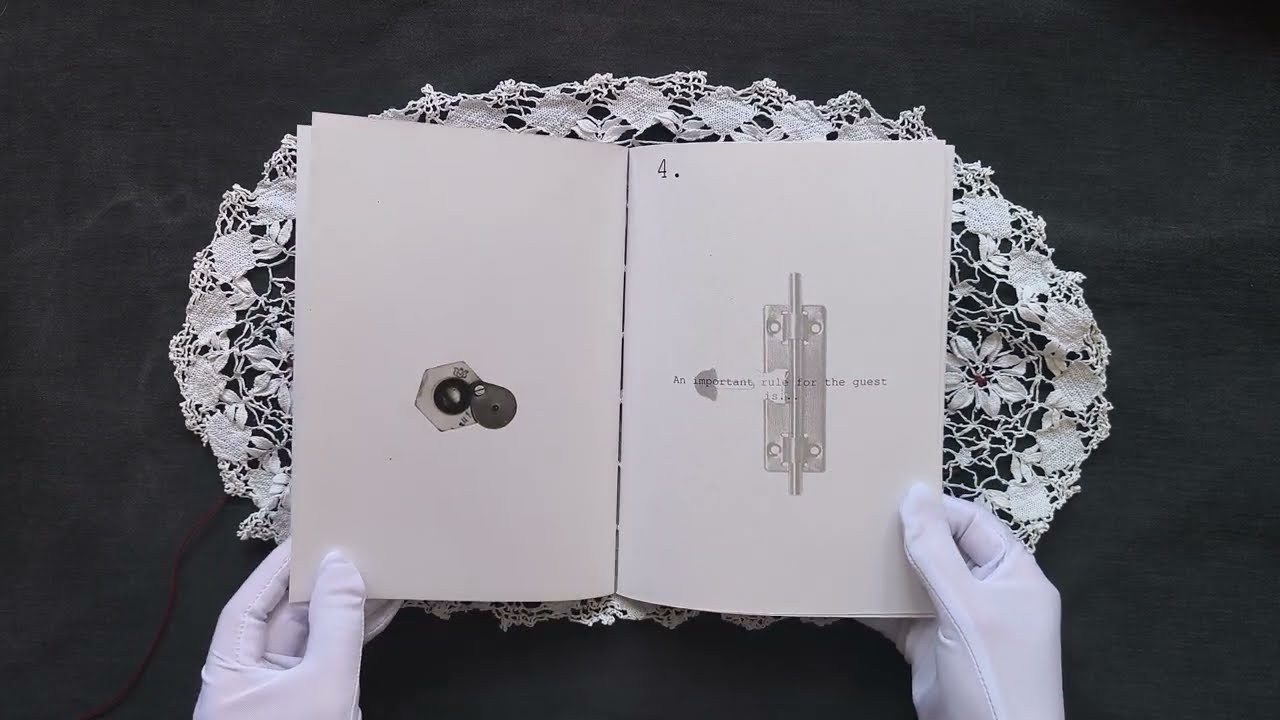Ritualizing Uncertainty,
2025 - WORK-IN-PROGRESS
A series of street performances, artist books, assemblage objects, documentation.
The project was started during Zaratan Residency.
It was supported by the Goethe-Institut as part of the program “Culture Moves to Europe”.
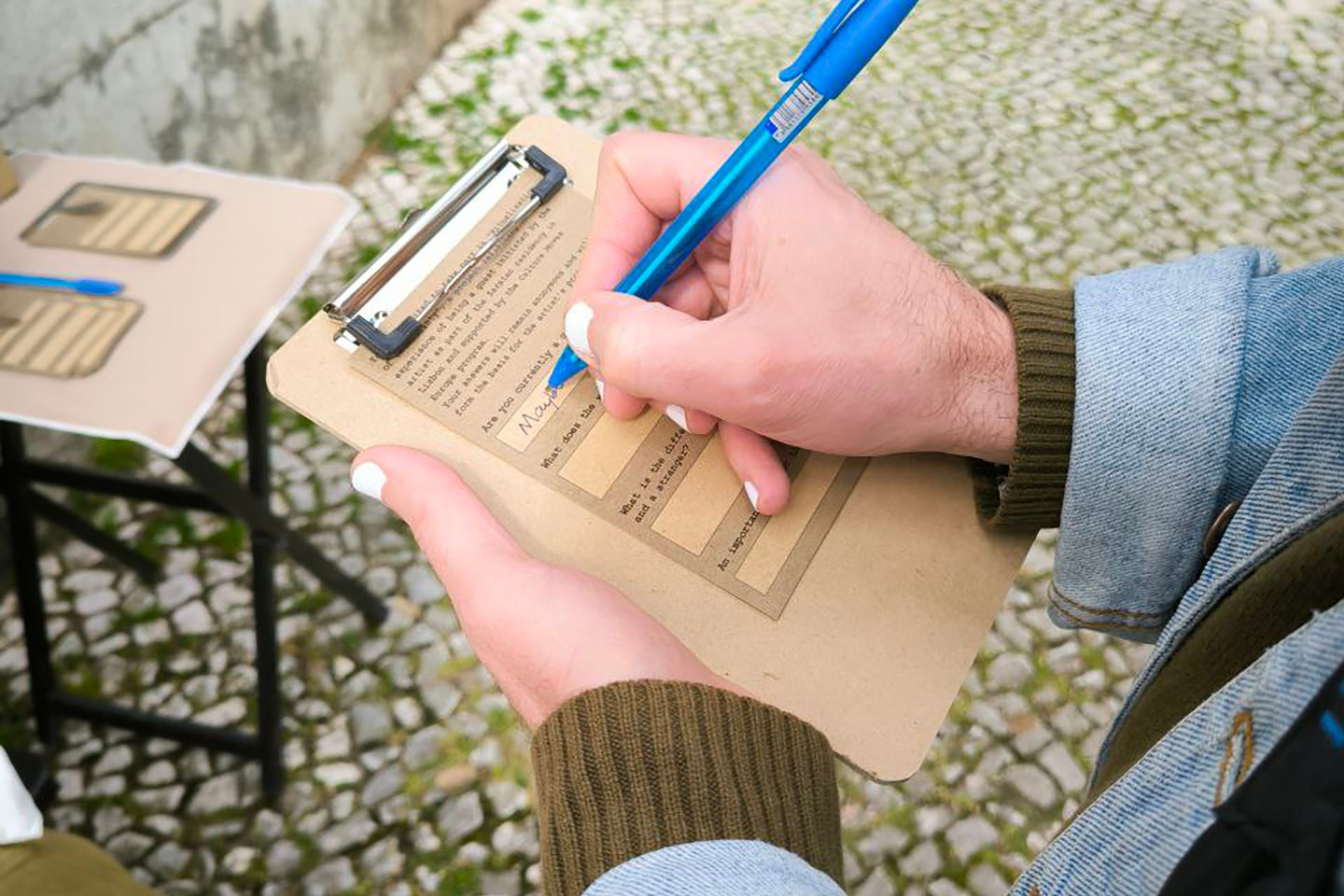
“Ritualising uncertainty” is the project explores the process of being a guest as an ethical practice, starting from the premise that the relationship between guest and host is never neutral; it is a process of constant translation defined by both invitation and rules.
The guest is a figure neither fully integrated nor fully alien, oscillating between clearly defined on the one hand and constantly changing conditions and boundaries on the other. In “Ritualization of Uncertainty”, I examine guesthood as a condition of negotiation, an unstable position that requires constant adaptation on both sides.
To understand the dynamics of guesthood—its definition, enactment, imposition, and challenges — I employed street-based participatory performances. These performances gathered public responses to questions exploring the meaning of “guest, ” and its perception as both a welcome presence and a tolerated outsider.
As a result of these performative acts, as well as my stay at the residence, I created a series of objects that represent a guest set that, on the one hand, refers to the reflection of the idea of the guest in everyday life and, on the other hand, forms a critical space with the visibility of the conventions of temporary stay.
Agreement, 2025
Textile object — artist’s book. Pillows, hand embroidery, metal rings.
Guest status is defined by conditional encounters, regulating access and duration. This artist’s book is composed by a series of pillows with guesthouse contracts. Stripped of its intimate function, the pillow became a document, a surface on which rules are not only written, but imprinted, and which persist beyond the moment of contact with the skin.
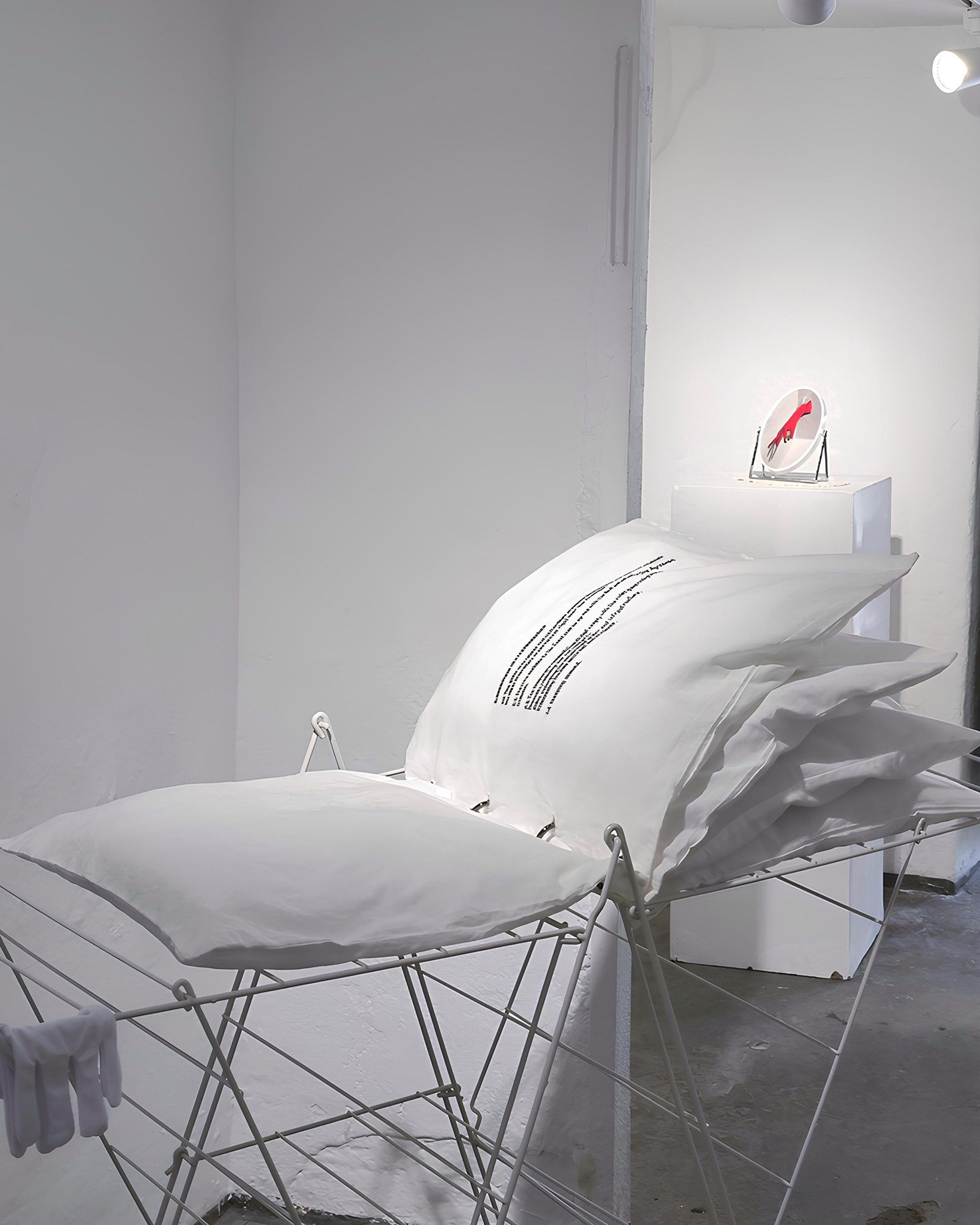
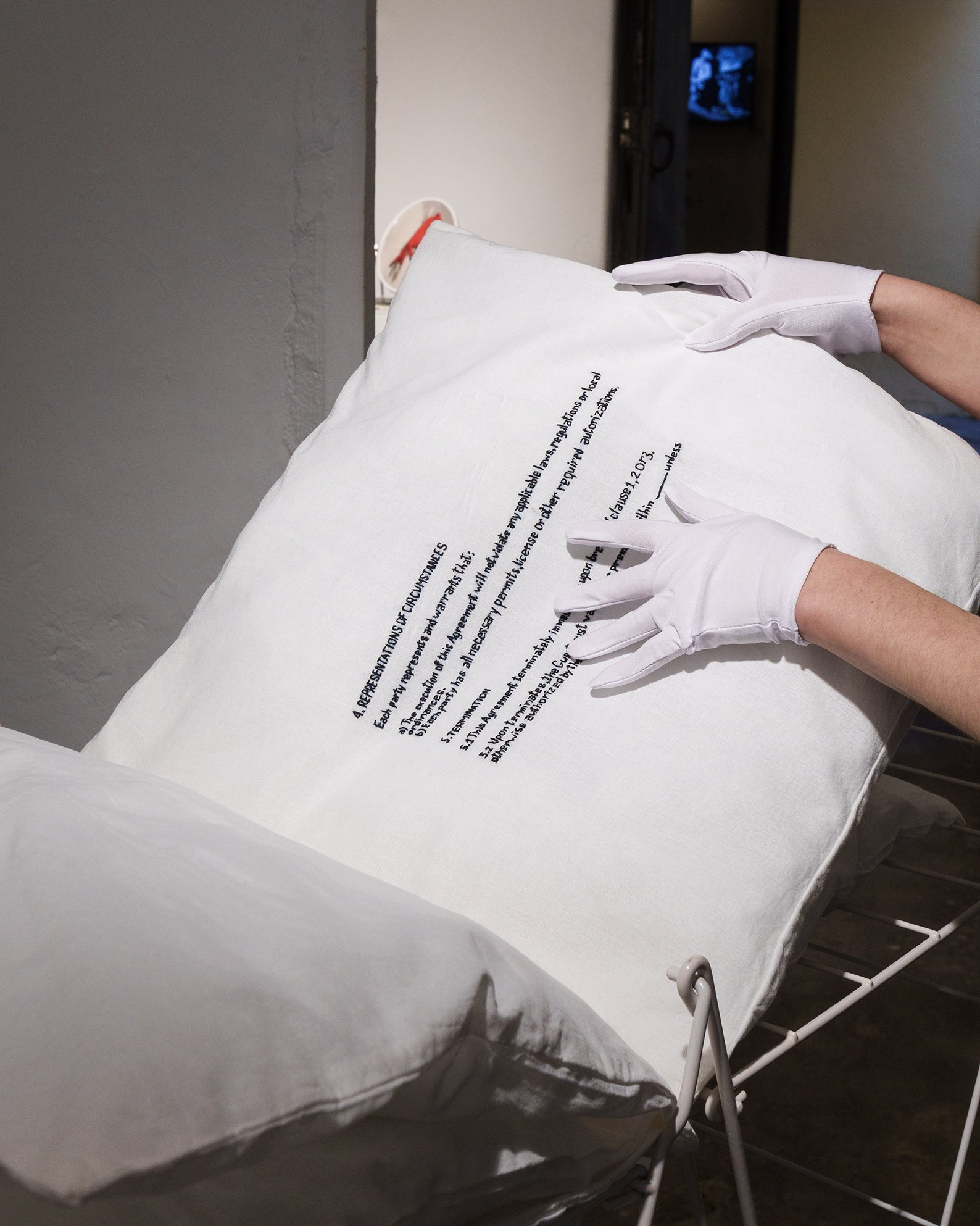
Departure Point, 2025
An artist’s book that became the documentation of street performances in Lisbon.
Through, 2025
Site-specific object, assemblage
The uncanny emerges when the lines between self and other dissolve. The guest, more than a mere outsider, shatters the space’s perceived coherence, exposing its constructed nature.
In the mirror, the familiar reflection falters, replaced by the spectral trace of another—an absence made tangible. The glove, a remnant of a departed body, acts as a gesture towards the other’s image, a persistent unease and potential threat we carry within.
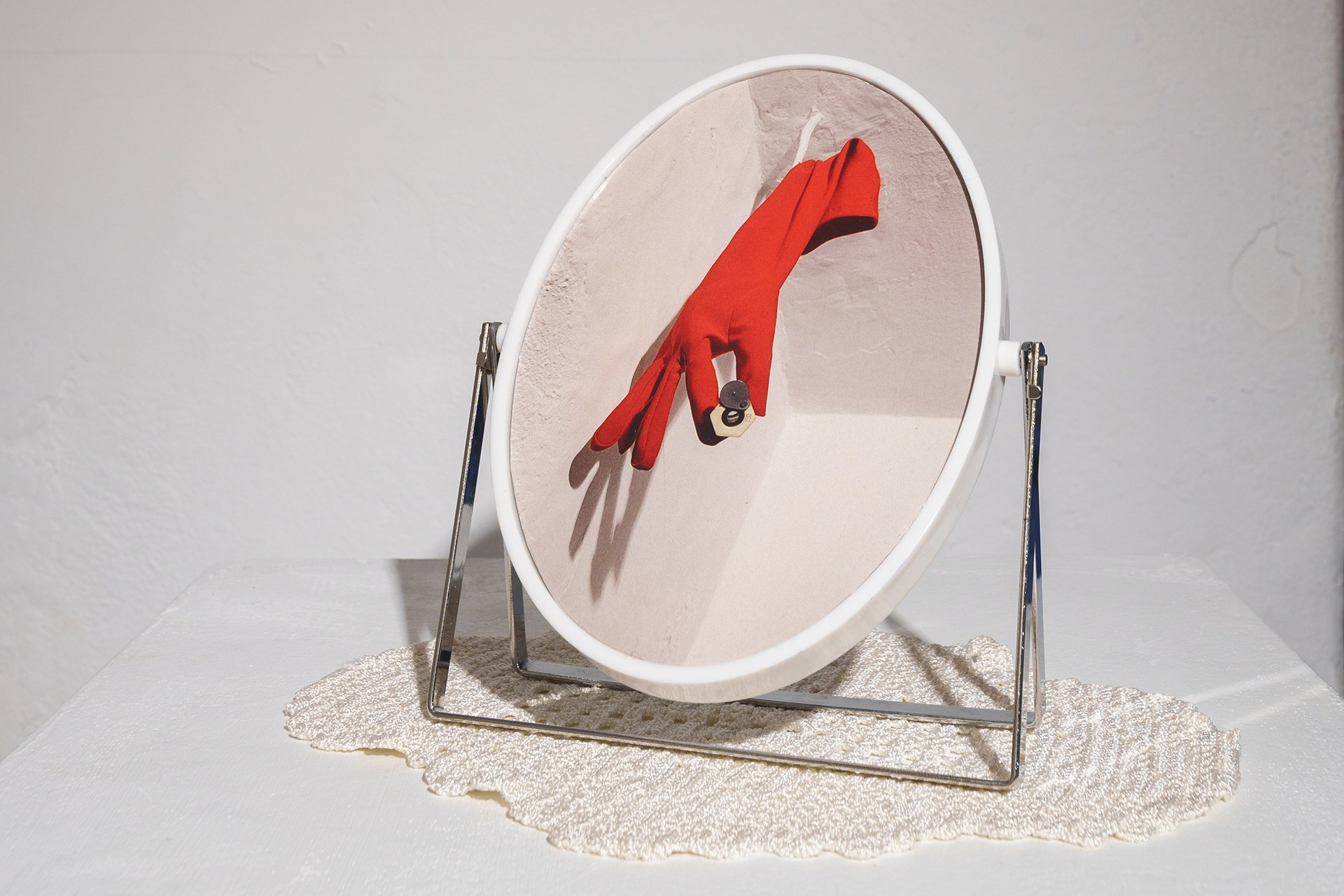
Transit zone, 2025
Textile napkin, printing, hand embroidery
The napkin with the text of a thank-you letter for the return of a book to a bookstore in Lisbon.
During a three-month artist residency in Switzerland in 2024, I found a book about Lisbon’s architecture at a free book stand. The book traveled with me through Belgrade to Lisbon, where later I noticed a label that identified its origin: Ferin’s Bookshop.
Further research revealed that the bookstore was no longer in operation, although its presence remained through traces — the shop’s name inscribed above the door and surviving in the form of blank papers.
When I arrived in Lisbon, I returned the book by giving it to the current owner of the shop and received a handwritten thank-you note on the paper of the former shop, which I later printed on a napkin.
This work focuses on the ritual of return as both a personal gesture and a reflection on broader structures of hospitality. By reintroducing the book to the place it once came from, the act reactivates a chain of circulation independent of its original commercial context.
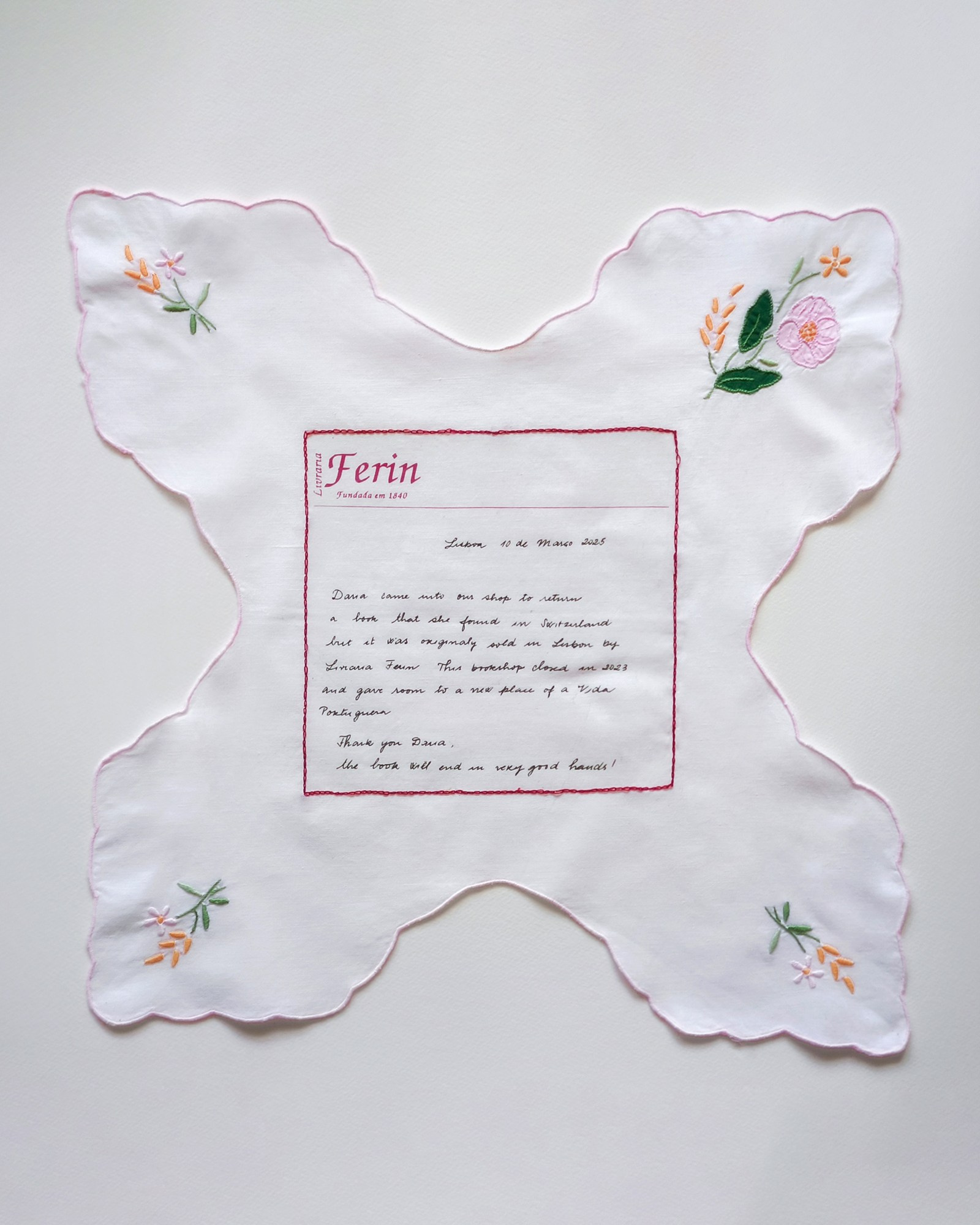
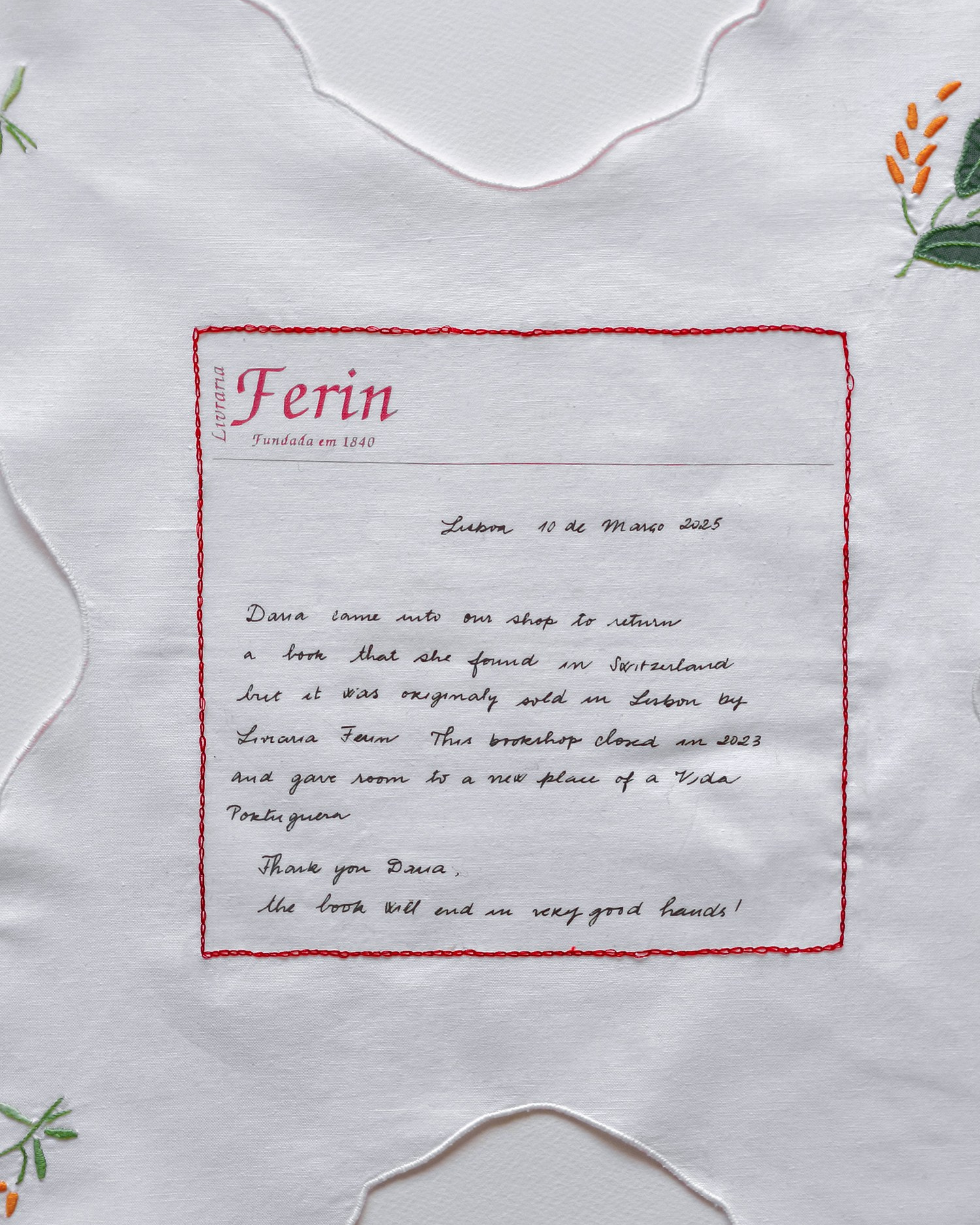
Threshold, 2025
Object, assemblage
According to Marc Augé, the possibility of a non-place is always present in every place — a place of transit where the bonds of identity, memory, and belonging weaken. The threshold, traditionally a marker of transition between the familiar and the unknown, is a procedural checkpoint where entry and exit are dictated by from the position of power. The conditions that define place — its embedded histories, its relational significance — erode under the logic of transit, reducing the experience of space to mere passage, an impersonal flow of arrivals and departures.
